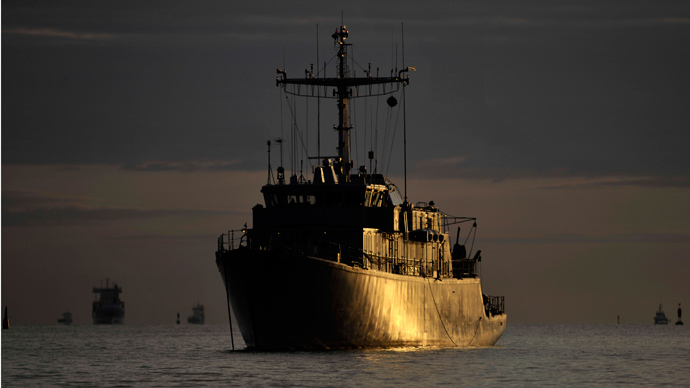France cannot afford military operation in Syria

The G20 should be focusing on their flagging economies rather than planning a military operation in Syria they can’t afford, analyst, Alex Korbel, told RT. France, in particular, is at full stretch, with 16 military campaigns abroad and an ailing economy.
The Syrian conflict has eclipsed the G20 meeting in Saint Petersburg, as the international community is unable to come to an agreement over a possible military strike. Washington has put forward a plan for military intervention against the Assad regime, which it believes is responsible for a chemical attack in a Damascus suburb on August 21.
RT:If the UN team of inspectors finds that chemical weapons were used in the Damascus attack, do you believe military intervention could be justified?
Alex Korbel: I think there is no case for
military intervention in Syria for several reasons. The first
reason is that there is no national interest for France or the US
to actually intervene in Syria. The regime of Bashar al Assad was
not a problem in the past and it is not clear why it’s now a
problem for France and the US. There is no clear objective in the
military intervention as it is now presented. Is it about
maintaining the credibility of the US? What credibility exactly?
The credibility to intervene in unnecessary wars? Is it to ban
the use of chemical weapons? Then why does the US have chemical
weapons in its arsenal? Is it to weaken the Bashar al Assad
regime? In that case you need to put boots on the ground. If it
is a humanitarian way to help the civilians, then locking on
cruise missiles is not the right solution.
For all of these reasons the US and France has decided to move
ahead with limited military intervention. But still there is a
danger of falling down a slippery slope. What if a military
intervention has no effect? Are we going to see full war? What
would be the consequences in the region? I am thinking about Iran
and Lebanon and I am thinking about a war less than 1000
kilometers south of Russia.
There is no broad international support for this war. Germany is against it, the UK is against it, China and Russia are against it. The only countries that are in favor are France, which has not yet consulted parliament, US and Israel and Saudi Arabia. Finally, public opinion is clearly against it everywhere. We saw it in the UK and the public polls in the US and France that the public is massively against military intervention in Syria.
RT:Given the climate of economic crisis in
the EU, can France feasibly participate in another military
operation?
AK: The economic situation of the EU countries is really bad. We can see in France that public debt is higher than 90 per cent of GDP. We see economic growth is less than 1 per cent. We see across G20 countries on average that unemployment is at 9 per cent and growing, that public debt is 64 per cent and growing, that economic growth is 1 per cent and weakening. What needs to be done is not to intervene militarily in another country.
France is already intervening in 16 countries worldwide. Clearly we don’t have any money to finance a seventeenth operation. The purpose of France, the US and any western power is not to ‘play the cop’ around the world but actually to maintain a sound economic policy first and then maybe lead by example on the international scene.
The statements, views and opinions expressed in this column are solely those of the author and do not necessarily represent those of RT.











